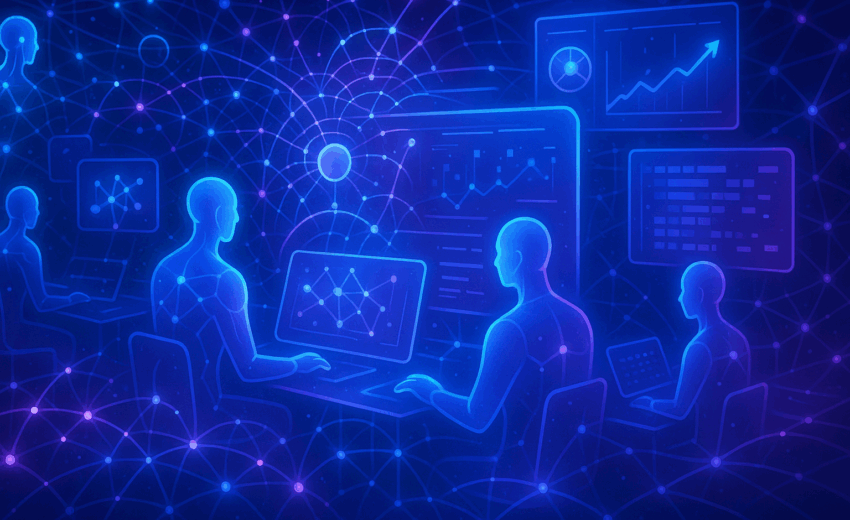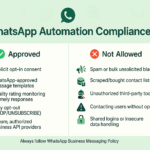
Table of Contents
TL;DR
Agentic AI represents a major leap in artificial intelligence, where autonomous systems proactively plan, decide, and execute multi-step complex tasks with minimal human input. This trend, growing rapidly in 2025, moves AI beyond simple chatbots toward sophisticated agents capable of dynamic, real-time decision-making and collaboration. Agentic AI is reshaping SEO, digital marketing, healthcare, finance, and many industries, optimizing workflows and driving unprecedented productivity. However, challenges like governance and integration remain critical as businesses prepare for this transformative technology.

Understanding Agentic AI
Agentic AI refers to autonomous AI agents equipped with the capability to act independently and proactively toward achieving complex goals. Unlike traditional AI or rule-based automation that waits for human commands or predefined triggers, agentic AI systems sense their environment, analyze data continuously, and make decisions dynamically. They can plan multistep workflows, adapt to changing circumstances, and collaborate with humans or other AI agents, signifying a shift from reactive tools to proactive co-workers.
These systems leverage advanced machine learning, natural language processing, reinforcement learning, and multimodal data integration to perform tasks that require reasoning, creativity, and goal-directed behavior. This class of AI blurs the line between automation and autonomous decision-making, enabling industries to automate complex processes that previously required extensive human oversight.
Why Agentic AI is Trending in 2025
The surge in interest around Agentic AI stems from increasing demands for smarter, more flexible automation. Classic automation and chatbots fall short when facing unpredictable or complex environments requiring reasoning across multiple stages. Businesses now seek AI that can innovate autonomously, solve problems independently, and optimize workflows without constant human tuning.
In 2025, search data shows a sharp rise in queries for Agentic AI, triggered by the technology’s breakthroughs in autonomous decision-making and multi-agent collaboration. Leading software companies, enterprises, and startups are investing heavily to incorporate these systems. The ability of agentic AI to work seamlessly in real time, manage workflows, and personalize user experiences drives higher efficiency and better outcomes across sectors.
How Agentic AI Works: Autonomy and Proactivity
Key to agentic AI is its autonomous nature. After receiving a high-level goal, it:
- Independently researches and plans task steps
- Evaluates outcomes and dynamically adjusts strategies
- Interacts proactively with both digital and physical environments
- Collaborates with other specialized AI agents, combining capabilities for complex problem-solving
Proactivity means agentic AI can anticipate challenges or opportunities before they arise, offering solutions upfront. For instance, in supply chain management, agentic AI can reroute shipments preemptively around delays detected by real-time weather data and traffic patterns. In SEO, autonomous agents analyze changing search algorithms and user behavior patterns to optimize content continuously without manual rework.
Agentic AI’s Impact on SEO and Digital Marketing
Agentic AI is revolutionizing SEO by enabling autonomous execution of optimization strategies. It acts like a master strategist, continuously analyzing the digital landscape, spotting content gaps, generating targeted keywords, personalizing user experiences, and dynamically adapting to search engine updates.
This results in:
- Real-time SEO improvements with minimal human oversight
- Advanced voice search optimization through natural language processing
- Personalized content delivery tuned to user intent and behavior
- Automated auditing, tagging, and opportunity detection for better visibility
Marketers now leverage agentic AI agents to reduce repetitive tasks, freeing teams to focus on high-level creative strategies and innovation. This autonomy dramatically scales SEO efforts, improving organic reach and engagement in a highly competitive space.
Real-World Applications Across Industries
Agentic AI applications extend well beyond SEO and marketing:
- Customer Service: Comprehensive AI agents manage entire support workflows, personalizing responses and proactively resolving issues without human handoff unless necessary.
- Healthcare: AI coordinates patient care, schedules, diagnostics, and treatment planning autonomously, adapting to patient condition changes in real time.
- Finance: Specialized AI agents monitor compliance, detect fraud, optimize investments, and manage risk with continuous learning and decisions autonomy.
- Supply Chain & Logistics: Proactive rerouting, demand forecasting, inventory management, and supplier coordination optimize efficiency and reduce downtime.
- Software Development: Agentic AI generates code, runs tests, debugs, prioritizes backlogs, and manages project workflows, boosting developer productivity.
Industries adopting agentic AI report higher efficiency, improved accuracy, cost savings, and enhanced customer satisfaction by deploying these systems as trusted collaborators rather than mere tools.
Trade-offs and Challenges of Agentic AI
Despite its transformative potential, agentic AI comes with challenges:
- Governance: Autonomous AI requires robust safeguards to prevent unintended consequences and ensure ethical decisions.
- Security: Increased autonomy raises concerns about adversarial attacks and data privacy breaches if agents act unpredictably.
- Integration Complexity: Merging agentic AI into existing workflows demands significant reengineering and change management.
- Transparency: Explaining autonomous agent decisions remains difficult, complicating trust and regulatory compliance.
- Cost: Developing sophisticated multi-agent systems involves high resource investments and ongoing monitoring.
Businesses must balance these trade-offs with expected productivity gains, emphasizing responsible AI practices and human oversight frameworks.
Next Steps: Preparing for an Agentic AI Future
Organizations eager to leverage agentic AI should:
- Invest in education and training to understand capabilities and risks
- Pilot autonomous AI agents in low-risk domains to build trust and proof points
- Develop governance policies tailored to autonomous AI ethics and transparency
- Collaborate with AI vendors specializing in agentic ecosystems and frameworks
- Continuously monitor performance and enforce human-in-the-loop oversight where necessary
Adopting agentic AI gradually while addressing security and ethical concerns will position businesses to unlock long-term benefits from this proactive automation revolution.
References
- IBM, “What Is Agentic AI?” (2025)
- AWS, “What is Agentic AI?” (2025)
- AIMultiple, “10+ Agentic AI Trends and Examples” (2025)
- First Page Sage, “Agentic AI Statistics: 2025 Report” (2025)
- The Smarketers, “How is Agentic AI Transforming SEO in 2025” (2025)
- Relevant Audience, “Understanding Agentic AI: The Future of Autonomous Intelligence” (2025)
- Search Engine Journal, “Agentic AI In SEO” (2025)
Micro-FAQs
Q1: What sets Agentic AI apart from traditional AI?
Agentic AI operates autonomously, proactively managing complex tasks and workflows, while traditional AI often reacts to direct commands or simple inputs.
Q2: How does Agentic AI improve SEO performance?
It autonomously analyzes search trends, optimizes content, personalizes user experiences, and adapts in real time to algorithm changes without constant human effort.
Q3: What industries benefit most from Agentic AI?
Customer service, healthcare, finance, supply chain, and software development are key sectors experiencing tangible gains from agentic AI adoption.




